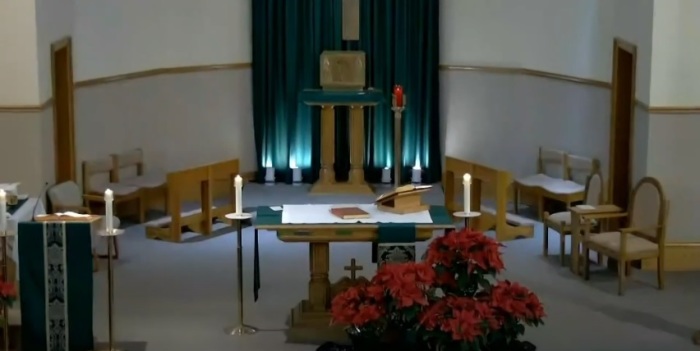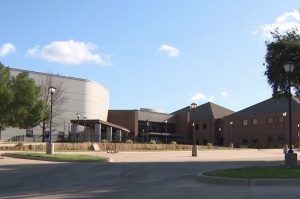Church sues Michigan over civil rights law, claims it violates religious beliefs on sex, marriage

A Catholic church in Michigan is suing the state over a civil rights law that the religious institution argues will force it to violate its beliefs on marriage and gender — there only being only two sexes and not a plethora of genders.
St. Joseph's Catholic Church of St. John's filed the complaint against Michigan Attorney General Dana Nessel on Monday in United States District Court for the Western District of Michigan, Southern Division.
Other defendants include Michigan Department on Civil Rights Executive Director John E. Johnson Jr. and members of the Michigan Civil Rights Commission.
At issue was the state government's interpretation of the Elliott-Larsen Civil Rights Act to define sex discrimination as including discrimination on the basis of gender identity and sexual orientation.
"The ELCRA does not contain a religious exemption that would cover St. Joseph’s hiring decisions and enforcement of its code of conduct as to both employees and students," stated the complaint. "Michigan’s reinterpretation of the ELCRA threatens St. Joseph’s freedom to continue its religious mission of cultivating a Catholic community faithful to Church teaching in both word and deed."
At issue is St. Joseph's adherence to Catholic teaching, which defines marriage as exclusively between one man and one woman, as well as the fact that humans are either male or female.
The church is concerned that the current interpretation of state civil rights law will force it to hire school or church staff who do not adhere to its teachings.
Lori Windham, vice present and senior counsel for the Becket Law firm, which is helping to represent St. Joseph's, told the Lansing State Journal that the goal of the litigation was not to strike down the law.
"They're not asking to invalidate the entire law," explained Windham. "They're asking to be able to continue with their own religious beliefs and practices."
The Christian Post reached out to the Michigan Attorney General's office for comment. A representative responded on Wednesday, saying they have not received a copy of the complaint and cannot comment.
In July, the Michigan Supreme Court ruled in the case of Rouch World LLC et al. v Michigan Department of Civil Rights et al. that the state ban on sex discrimination includes sexual orientation.
That case was about an event center in Sturgis, Michigan, whose owners refuse to host a same-sex wedding ceremony, as it conflicted with their sincerely-held religious beliefs.
The litigation also centered on Uprooted Electrolysis, a company that refused to perform a hair removal procedure for a trans-identified individual because the service was viewed as being "centrally connected" to the person's "transgender identity" and thus went against the owner's religious views.
"Sexual orientation is 'inextricably bound up with sex,' because a person’s sexual orientation is generally determined by reference to their own sex," ruled the state's highest court.
"For example, attraction to females in a fellow female is considered homosexual, while the same trait in a male is considered heterosexual; the sex of the individual at issue is necessary to determine their sexual orientation. To discriminate on the basis of sexual orientation, then, also requires the discriminator to intentionally treat individuals differently because of their sex."
The state high court was inspired by the 2020 U.S. Supreme Court decision Bostock v. Clayton County, Georgia, in which the nation's highest court ruled 6-3 that Title VII of the Civil Rights Act of 1964 applies to sexual orientation and gender identity, even though neither category is specifically mentioned in the law.
In August, Christian Healthcare Centers, a network of medical professionals that is based in Grand Rapids, sued Nessel over the new interpretation of state civil rights law, arguing that it would force them to, among other things, prescribe hormone drugs for gender transition and use patients' preferred pronouns.
Christian Healthcare Centers is being represented by Alliance Defending Freedom, with the case being filed in U.S. District Court for the Western District of Michigan.





























